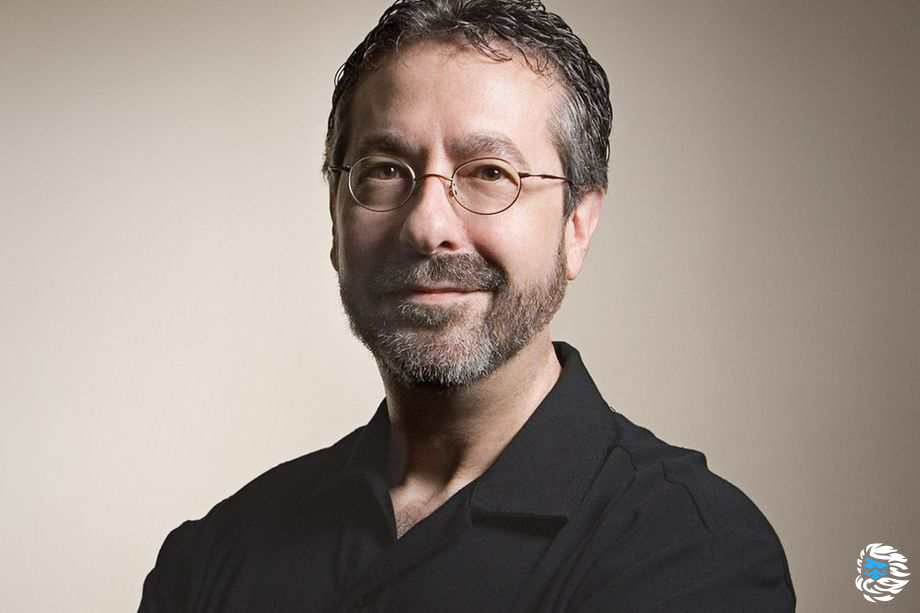
If the gaming industry had a “hall of fame”, Warren Spector would have taken pride of place there . Legendary man, visionary, author of the cult Deus Ex and System Shock , the founder of the immersive sim genre , giving players unprecedented freedom of choice. It seems that with such authority and recognition, all doors open and any idea finds support. But, alas, not everything is so simple, and Spector's biography confirms this: many times he “jumped off a cliff”, trying to make the game of his dreams, and almost always faced insoluble problems and misunderstanding of investors. Let's join journalist Jason Schreier Let's follow the thorny creative path of the gamedev legend.
From tabletop to creating Deus Ex
Since childhood, Warren has been obsessed with creating interactive stories. He was early into board RPGs, and when he moved to Austin, Texas at 22, he joined a group of friends who regularly play Dungeons & Dragons.... An interesting fact - one of the gaming sessions lasted 10 years, and the future luminary of the cyberpunk genre Bruce Sterling was the game master. At the University of Texas, Spector studied cinema, wrote a thesis and taught to pay the bills - until one day he was fired. After a while, a friend invited him to work as a board editor at Steve Jackson Games. Warren's modest salary did not bother: then, according to him, he was an amateur gamer, and such work made it possible to create his own gaming systems and campaigns.

Three years later, in 1986, he was called from the TSR Inc . - the Wisconsin firm behind D&D - and was offered an editorial position: an event comparable to inviting a student to the NBA to play for his home college basketball team. Nevertheless, he did not stay there for a long time: not only the harsh northern climate affected, but also the monotonous work, which quickly bored Spector. He soon returned to Texas to join the newly formed Origin Systems , founded by the famed Richard Garriott .

Ultima
Thanks to the success of Ultima(by 1989, several sequels had already been released) and in the wake of the boom in the video game industry, the studio expanded rapidly. Working at Origin taught Spector the craft of a producer - leading design teams, managing projects, and doing seemingly impossible things: uniting stubborn talented people with a single creative vision. Spector worked with Garriott on Ultima VI, helping to create a detailed history of the gargoyle horde (where they used a novel technique for the time, giving antagonists complex motives), and with Chris Roberts- over the famous space simulator Wing Commander. “I had the following business model,” Spector recalls. “I launched four projects (two external and two internal) and every year I closed the two least successful, encouraging all employees to work so that their project was among the best.”
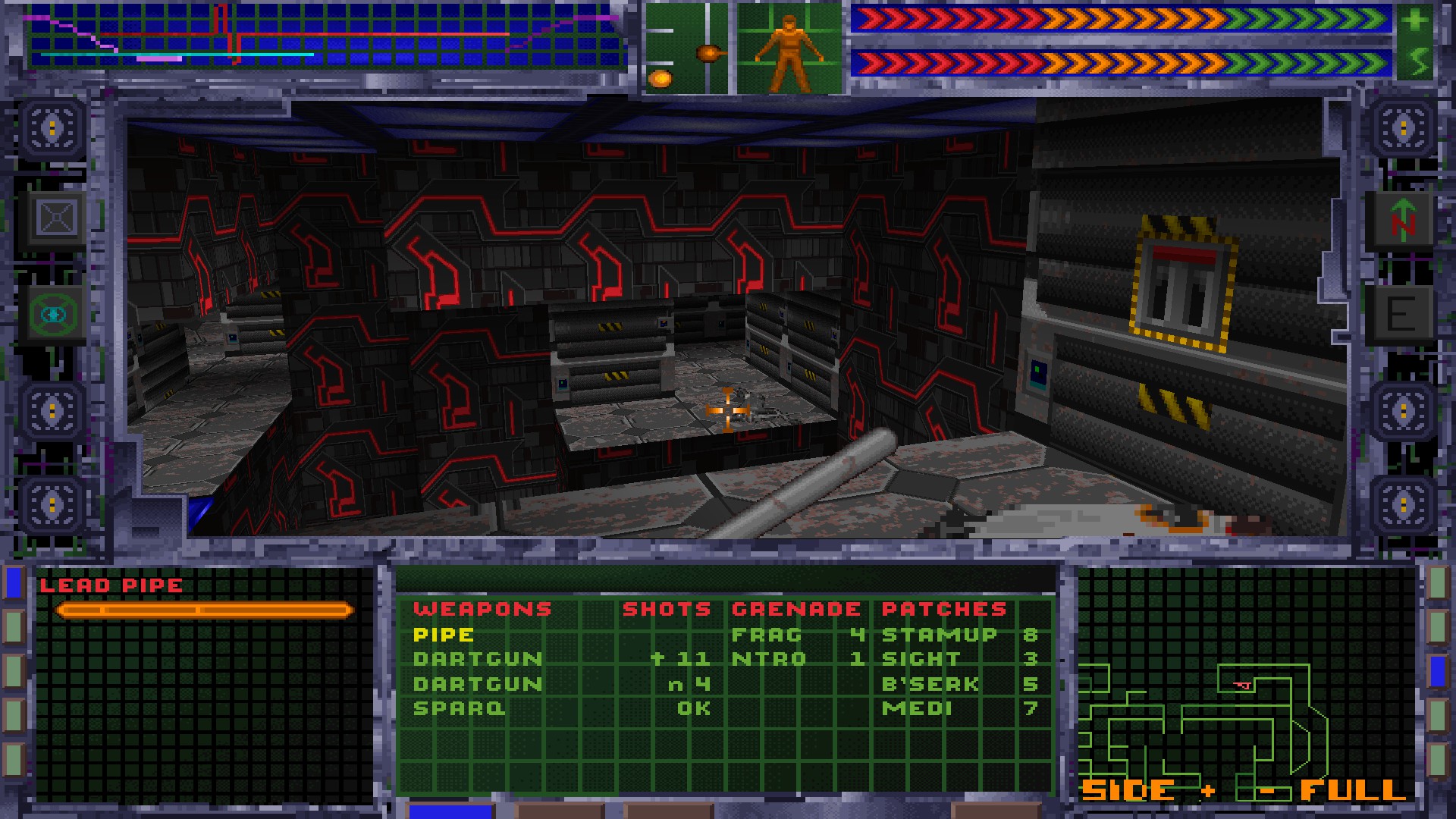
System Shock
During these same years, Spector began a friendship with Paul Neurath , head of the Cambridge-based Looking Glass studio, which worked with Origin. Ultima Underworld was released with Looking Glass and System Shock - games with different settings, but similar in game design based on the principles of Dungeons & Dragons. Both helped shape what is often referred to as the immersive sim today. We are talking about games that give the player the tools to solve game problems in various ways, with many options, in contrast to the same standard action shooters, which in the process of passing will require only one thing - to destroy the enemy. Giving the player a sense of unlimited options and freedom of choice was a fundamental paradigm shift for the industry in the early 1990s.

Paul Neurath
Alas, despite its innovative game design, Origin had funding problems, and in 1992 Garriott sold the company to a major publisher Electronic Arts (EA). At first, everything went well: EA's managers gave Spektor a large budget and creative freedom, but there was no expected return. The costs for Warren's team were high, there were dozens of projects in the work, but there were no successful ones among them by EA standards. The pressure began: the publisher's management became frequent visitors to Austin, and Spector was accused of poor management. EA said their top priority was to maximize shareholder returns, and with the products and genres that Warren cultivates, no significant growth is possible. An example was a colleague - Chris Roberts, whose Wing Commander became extremely successful as a commercial product, while Spector's projects, although highly praised by critics and the community, brought very little profit.

John Romero
Amid all this, the only thing left was to quit Origin. After speaking with Neurath, Spector opened a Looking Glass studio in Austin in 1996 and began work on a new project, the sci-fi multiplayer game Junction Point. But there was no success here either: without receiving investment, the studio closed after a few months, and the game eventually remained at the project stage. In search of funding, Spector almost signed a contract to develop an RPG for the Command & Conquer (C&C) series, but then the legendary John Romero intervened . Having quarreled with colleagues from id Software, the author of Doom created his own studio called Ion Storm.and now he offered Warren to work for him instead of a C&C deal. And on great terms: “Unlimited development budget and bigger marketing budget than ever. I was asked to make the game of my dreams, without any interference. What fool would refuse such a thing? ”Spector recalls.
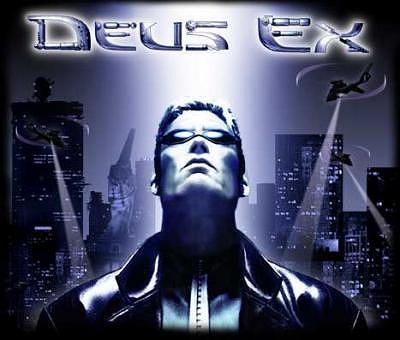
The result was Deus Ex - a unique mixture of genres and the embodiment of the idea of an immersive sim, in which the player could overcome all obstacles in completely different ways. As Spector later wrote, the goal was "to make a game about the player's self-expression, not how smart we ourselves are - designers, programmers and storytellers." The game was released in June 2000 and became not only a phenomenon, a new page in the history of the industry, but also a commercial success (more than a million copies were sold).
However, Spector was soon “lucky” again: from an independent company, Ion Storm, it turned into a division of the large publisher Eidos . Despite the success of Deus Ex, while actively working on the sequel ( Deus Ex: Invisible War ) and on the new game from the Thief series, the publisher's managers and marketers bullied Spector and his approach to game design. In particular, they banned the development of a game about the Wild West, arguing that this topic will never bring big money (which was later successfully refuted by Rockstar with the Red Dead Redemption series ). It got to the point where the bosses asked him not to use the word "story" in discussions about video games.
“ — , , , . — ”.
Spector worked without thinking about the requirements of profitability and cost optimization: “I have never in my life, in any of my projects, made a budget and a schedule. And I always ask in this case: can you name at least one really great game that was released on time and within budget? " In the eyes of the publisher, this position looked irresponsible, and it is not surprising that in 2004 Spector left Ion Storm (and in 2005 the studio was closed).
What's next? Where to go for a nearly 50-year-old game designer in an industry where 20-year-olds seem to be ruling? Each project takes 2-3 years, most of it does not reach release in the end - how many projects will he be able to complete?
“Jump off the cliff! Jump off the cliff! ”
Perhaps it was these words of Spector's wife Caroline that made him muster the courage to open his own studio, named Junction Point (in honor of the canceled game). Warren recruited his friend Seamus Blackley, an intellectual with good connections in the industry, to search for customers and investors. At that time, Blackley was just working as an agent helping to raise funds and had time to work with Tim Schafer (Psychonauts, Grim Fandango) and Lorne Lanning (Oddworld). The first was a deal to develop a fantasy RPG called Sleeping Giants for Majesco, but Majesco canceled the game a year later. The second project was a new episode of Half-Life 2 , and it was also canceled a few months later.
Believe it or not, a team of experienced developers led by an industry legend could not find funding for a new project. If this situation had arisen a few years later, they could well have taken advantage of the alternative methods available to indie developers: Kickstarter, self-distribution, small publishers. But in the mid-2000s, such opportunities did not yet exist. Spector's only options were big publishers like EA and Activision, but it seems that none of them were interested in Spector's work ...
It was like the end of a career. Jumping off a cliff, you can easily crash against rocks.

Salvation came from where no one expected - from Disney. The gaming division of the corporation had two big tasks: to launch its own gaming division (before that, licenses to create games with characters were given to other companies) and to develop a game with Mickey Mouse, who, although he was an animation legend, did not have serious popularity in games. The gaming division was headed by Graham Hopper, who hired trainees and assigned them to make a game about the confrontation between Mickey Mouse and Oswald the rabbit.- a character that Walt Disney created at the dawn of his career (the head of the studio, Bob Iger, bought the rights to Oswald from Universal especially for this case). The prototype of the game turned out to be quite impressive, but the studio bosses wanted a famous and cool studio to be engaged in such an iconic project. So the meeting with Warren Spector took place.
On the one hand, it was a great joy for Spector: who would refuse to work on a game about a world-famous character, and even for a good salary (given how difficult it was to find funding). But on the other hand, there was a condition that ran counter to all personal experience: Disney insisted on the takeover of Junction Point studio. What previously happened to Origin and Ion Storm, which became part of large corporations, now had to happen to his own studio, and Spector guessed how it could end. But there was simply no other way out - with the exception of Disney, no one offered money. Therefore, after much discussion, reflection and trading, Spector agreed to the deal.
It took three years to develop the game. Epic mickeybecame an exclusive for the Nintendo Wii platform , combining an unusual way of control (via a Wiimote controller) with elements of immersive sim: every player's choice had consequences, influencing the plot and dialogues. Disliked to meet deadlines and budget, Spector often clashed with the management of Disney, several times he was nearly fired. However, he managed to push his vision and schedule, and at the end of 2010 the game finally came out.
Epic Mickey's sales were good (1.3 million copies in the first month), and critics and audiences loved the game. The project almost paid off, which was already considered a success for a console exclusive. It seemed that the victory was won, everything is fine and it is worth waiting for a sequel, but ...
Disney Strikes Back
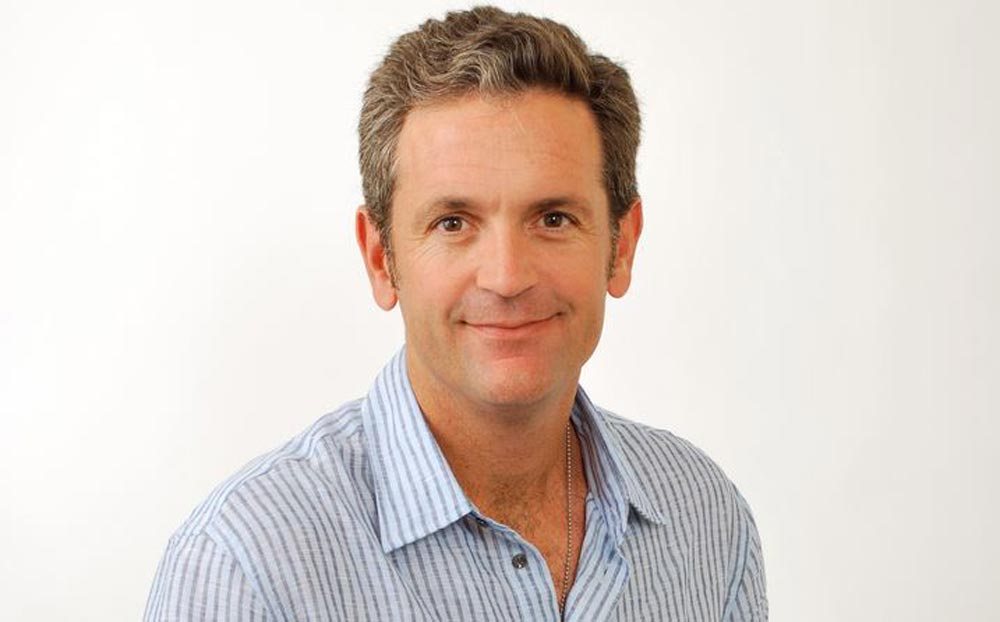
John Pleasants
By the end of the 2000s, Disney's game strategy had changed dramatically. The reason for this was not only the recession in the global market, but also the rapid growth in the popularity of mobile games and games on social platforms such as Facebook. Many analysts seriously believed that game consoles would soon become extinct. In the months leading up to Epic Mickey's release, House of Mouse struck a $ 763 million deal with social gaming company Playdom . Former Playdom boss John Pleasants becomes Hopper's boss Believing in online games and seemingly despising console games, it's no surprise that Hopper soon quit his job, leaving Spector unprotected. From Pleasant's point of view, poring over one game for years, all the more burning money for a sequel for dying consoles, was extremely pointless - it was much more rational to invest in fast projects that could be profitable in a year.
And Warren Spector could not do that: for him three years was the reference period for creating a game. And now, as once in Origin, he divided the studio into teams, each of which worked on its own project, and by the end of 2010, a few months later, a prototype of the Epic Mickey sequel was ready, on which Spector planned to spend two more - three years of quiet work in parallel with the development of new games.
But immediately after the Christmas holidays, the directive came: firstly, no new projects. Secondly, Disney calculated that the sequel to Epic Mickey could only pay off if it was released by the fall of 2012, and therefore demanded to strengthen the studio staff and speed up production. The result was not only that the studio's staff grew to 200 people (and this at a time when Disney was closing entire studios!), But also a decrease in the quality of the product: there was not enough time to find solutions, and conflicts arose due to the influx of new people. and misunderstandings. Under pressure from Disney, the developers had to dive into areas in which they were new to the game - but the corporation insisted on including popular "trending" elements in the game, up to options with the transition to a freemium model or becoming an MMORPG. This did not smile at the Spector.He was less and less involved in development, preferring to deal with new prototypes and ideas.
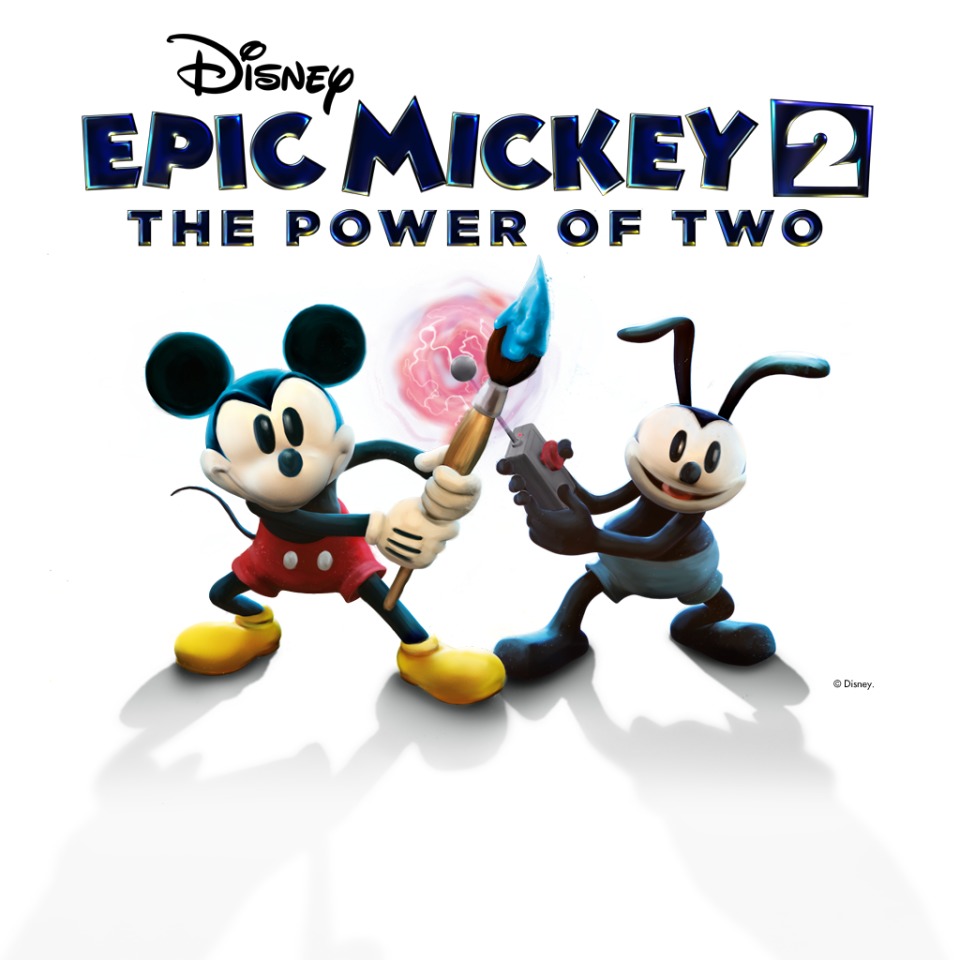
At the beginning of 2012, the conflict entered an acute stage. While discussing the prospects of the studio, Pleasant and Spector argued that the latter threw a pointer at his opponent and left, slamming the door. The retaliatory measure was a directive to cut costs - some of the employees had to be fired, the rest - to be loaded with overtime work. Spector tried to keep the staff and keep at least 75 employees (out of 200), but none of his many rescue plans were supported. In just a couple of years, Junction Point has gone from being a Disney flagship studio to being a powerless victim of a trend-setting race.
Epic mickey 2came out on November 18th ... and it turned out to be a failure. Critics condemned the game for the boring and monotonous gameplay and for the lack of development of the characters. But the main problem was that sales were depressingly low: in terms of the number of copies sold, the sequel was significantly inferior to the first part, and this despite the fact that it was no longer a Wii exclusive, but was available on the popular XBox and PlayStation platforms. This was the final judgment for the studio. And although Spector could not come to terms with it (he even organized a brainstorming session on the topic of creating a mobile game), it was all over. On January 29, 2013, two months after the pre-release crunches, Spector gathered staff in the break room and announced that the studio was closing. He himself was very upset about what had happened - he blamed himself for the collapse of the studio, his behavior at meetings, and non-participation in the development of the game.
“ . , . . Disney — ”.
, , ,
The 57-year-old Spector was prevented from retirement by a call from his native University of Texas - he was invited to teach a course on video game design and development, which he enthusiastically pursued for three years, until he realized that he was more attracted not by teaching, but by the creation of games itself. And the grant allocated for the course was coming to an end, and there were no applicants to finance the continuation. Game Underworld Ascendant , in which Spector acted as a consultant and was called a "new word" in reeks immersive sim genre, failed: the audience did not appreciate the monotonous gameplay and zabagovannost (which, in turn, may have resulted from a lack of funding - the funds raised through crowdfunding was not enough). At the end of 2015, John Neurath invited him to participate in the creation System Shock 3 is a continuation of the cult game, to which Spector was directly involved. But, alas, financial problems arose here too: the Swedish publisher Starbreeze , with whom a financing contract was signed, went bankrupt, and Spector had to, as in the good old days, try on the role of a merchant himself and fly to meetings with investors. In May 2020, the savior was finally found: the Chinese holding company Tencent acquired the rights to publish the game. The news is optimistic, given the power and capabilities of the corporation, but couldn’t the same be said about Disney?

System Shock 3 concept art
***
There are few people in the games industry who gave it over thirty years of their lives, as Spector did - and it is his biography that shows why there are so few of them. All four studios with which his career is associated (Origin, Looking Glass, Ion Storm, Junction Point), closed - either under him, or a few years after his departure. Spector made games that became iconic and critically acclaimed, but never achieved significant commercial success. His path, for all its uniqueness, is a symbol of the instability that video game developers constantly have to face (despite the fact that he was still lucky: there was no need to move from city to city to a new employer, as is often the case in game development).
With his games, Spector inspired thousands of developers and had a huge impact on the entire industry, but this did not help his own projects and studios survive. At least for now…
Cloud servers from Macleod are fast and secure.
Register using the link above or by clicking on the banner and get a 10% discount for the first month of renting a server of any configuration!
